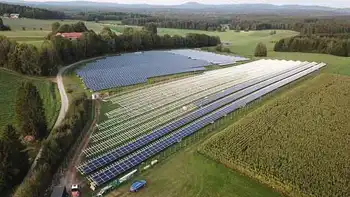CleanTech Biofuels to produce renewable power
CHICAGO, ILLINOIS - CleanTech Biofuels, Inc. intends to use its proprietary technology at a commercial site in Chicago, Illinois to produce cellulosic biomass as solid fuel for the production of electricity.
Beginning commercial production of biomass for electricity will allow CleanTech to develop significant revenue more quickly than originally anticipated.
Tests on the feasibility of using the biomass from CleanTech's processes for electricity production indicated that the energy value (or Btu value) is approximately 75 percent that of coal. Testing also indicates that the biomass has substantially less pollutants in emissions from combustion than other refuse derived fuels and coal.
CleanTech believes that this approach will dramatically lower the cost of its first commercial ethanol plant. By using the infrastructure it constructs for electricity production to support cellulosic ethanol production at the same site in the future, CleanTech believes that it will be able to incrementally increase the amount of MSW processed at the site daily to support both operations.
"We look at the application of biomass co-fired with coal as the low hanging fruit that can be done commercially right now," said Ed Hennessey, CleanTech CEO. "Coal prices have increased dramatically in recent years and that has increased the value of the energy content in our biomass."
Hennessey further added, "We are looking to develop a plant in Chicago using the biomass as solid fuel to produce electricity with traditional debt and bond financing to fund a significant part of the development costs. When our cellulosic ethanol conversion technology is ready for commercial implementation, we hope to use the infrastructure at the existing plant to add a cellulosic conversion plant to the same site."
Related News

Want Clean And Universal Electricity? Create The Incentives To Double The Investment, World Leaders Say
ABU DHABI - The heads-of-state and energy ministers from more than 120 nations just met in Abu Dhabi and they had one thing in common: a passion to increase the use of renewable energy to reduce the threat from global warming — one that will also boost economic output and spread prosperity. Access to finance, though, is critical to this goal.
Indeed, the central message to emerge from the conference hosted by the International Renewable Energy Agency (IRENA) this week in the United Arab Emirates is that an energy transformation is underway that has the potential to revitalize economies and to…




